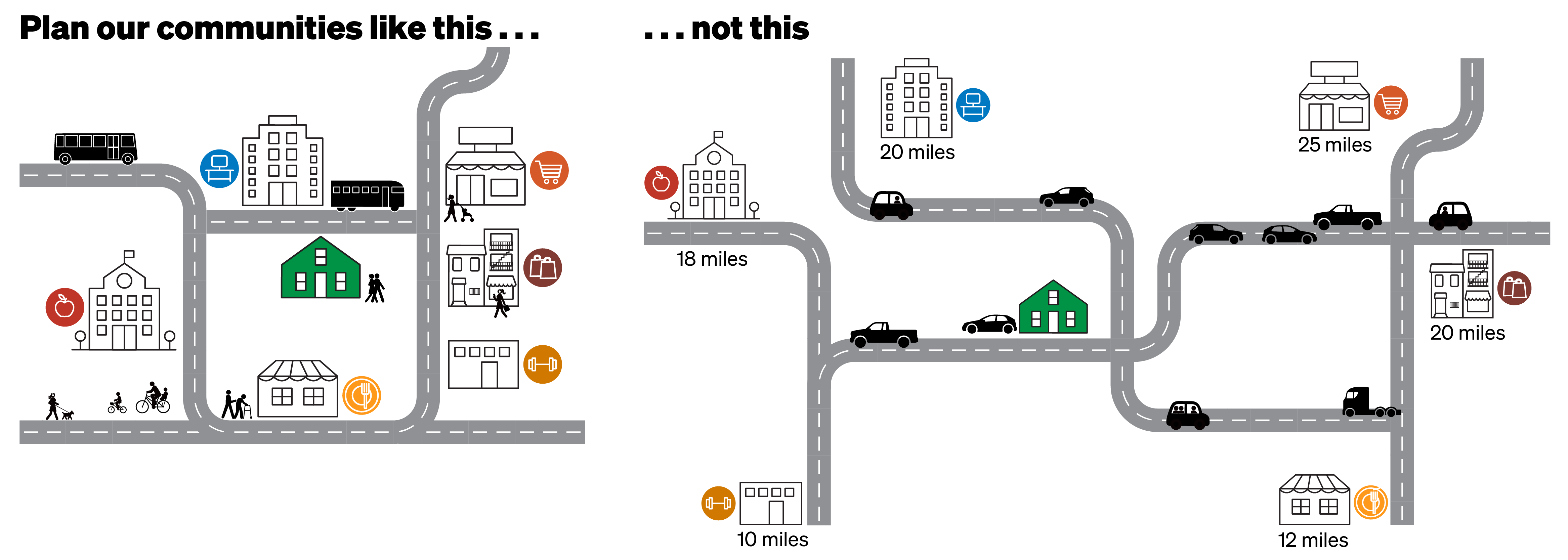Reimagine North Carolina’s transportation system
In North Carolina, pollution from transportation is the leading cause of climate change, and decades of investing in highway-centric infrastructure has deepened racial and socioeconomic inequities. Addressing these problems requires a dramatic rethinking of our transportation network.
Today we need innovative transportation solutions that enhance quality of life for our families. Modernizing our transportation system will create more livable, equitable, and prosperous communities across North Carolina.
Reimagining our transportation approach is an opportunity to:
- Minimize climate-changing emissions from the transportation sector;
- Improve access to jobs, schools, healthcare, grocery stores, and other necessities by offering people more affordable ways to get around;
- Cut air pollution and improve the health of our families;
- Address harm from poorly planned highways that have historically bisected Black and Brown communities; and
- Experience the joy of reducing time in the car.

At the state level, the N.C. Department of Transportation issued the North Carolina Clean Transportation Plan, which builds on our groundbreaking legal settlement to tackle climate change within NCDOT. Now the state must implement the actionable policies and programs outlined in the plan to reduce climate-changing pollution from the state’s transportation sector.
You can bring transportation solutions to your community, too. In North Carolina, changes in our transportation system begin from local conversations, among people who know what their community needs to move toward clean, equitable, and accessible transit.
Join us in working together toward transportation solutions. Express your interest in joining Clean Connected Communities here.
Clean Connected Communities is an advocacy network that aims to unite stakeholders like you—advocates, community leaders, experts, and citizens—in a concerted push for long overdue policy changes. Beyond mere advocacy, the initiative seeks to build capacity within communities, enabling them to create their own sustainable and equitable transportation landscapes.
We seek to bring together communities and advocates across the state to:
- Support lower-income communities and communities of color that have historically been left out of meaningful, fair participation in state decision-making;
- Provide communities with educational resources, training, and other capacity-building tools to obtain transportation solutions that serve local needs;
- Change state laws and policies that limit bicycle, pedestrian, and transit projects; and
- Increase state investment in transportation projects that include bicycle, pedestrian, and public transit components.
We see a future in which North Carolinians – from the mountains to the coast, in both rural and urban communities – have access to a cleaner, more connected transportation network, resulting in the reduction of climate-changing emissions and improving public health, equity, and economic development. We envision a transportation system in which the voices of underserved residents result in more mobility options for everyone.



